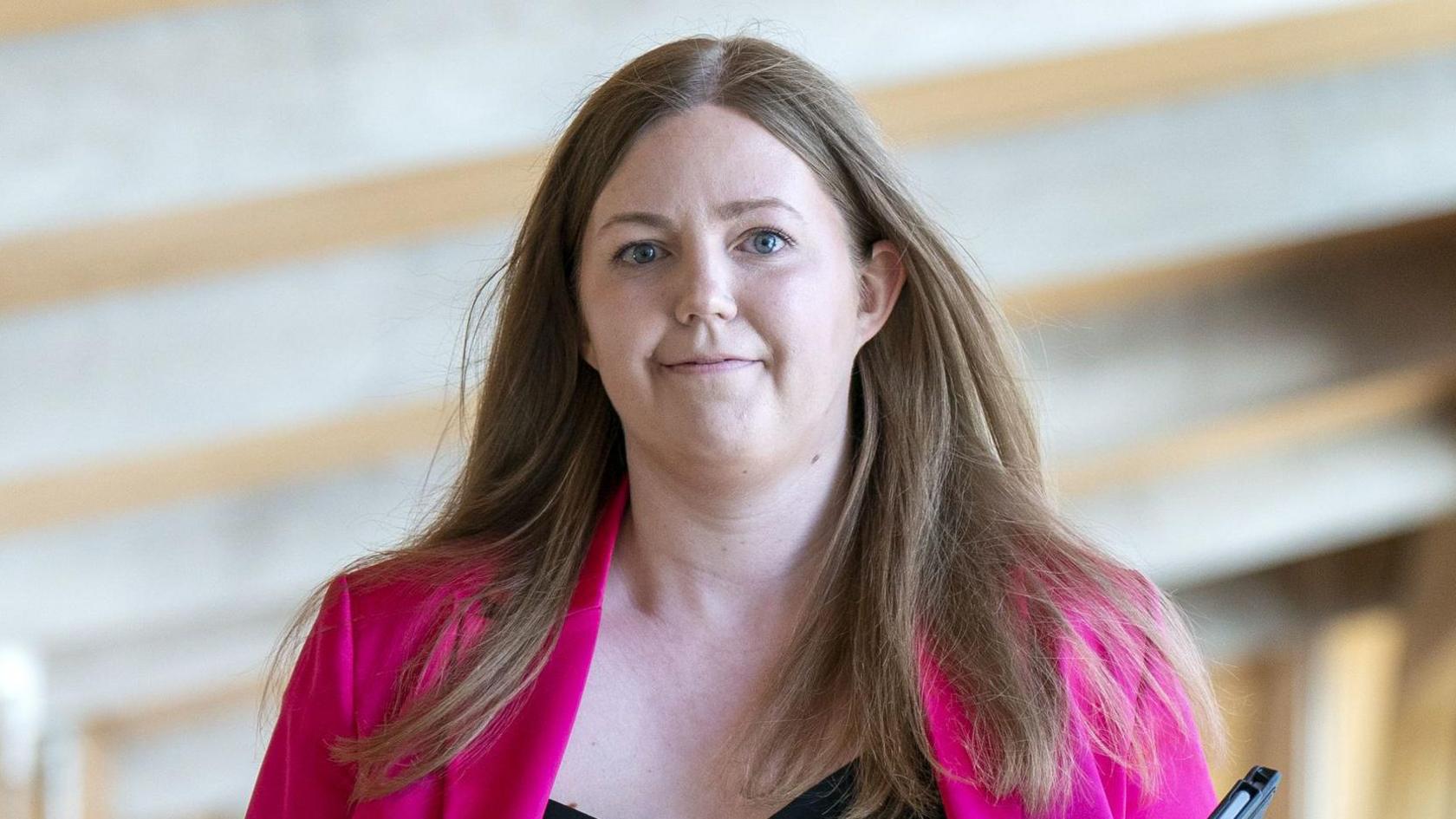Are the Scottish Greens descending into civil war?
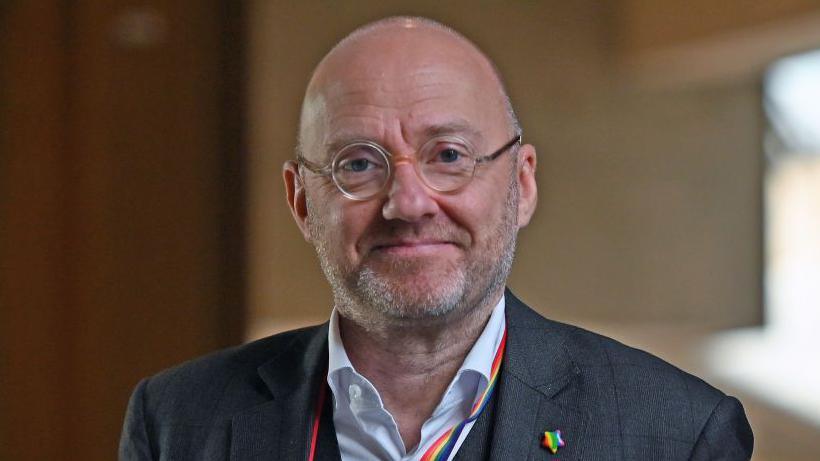
Patrick Harvie is hoping to be re-elected as an MSP at next year's Holyrood election
- Published
Patrick Harvie has been a Green MSP for more than 20 years - but now a group of his own local activists want to replace him.
It's just one of the latest twists in a series of internal disputes that have been rumbling away in the Scottish Greens.
All this is going on as the party searches for two co-leaders to take it into the next Holyrood election.
Patrick Harvie is standing down from one of these positions. He's proud of his record, though he believes political circumstances kept him in the role for too long.
The longest-serving leader in Scottish politics still wants to go back to Holyrood at the 2026 election.
But a group of "radical" Green activists are now looking to replace him as the party's top MSP candidate in Glasgow, a position that more or less guarantees election.
They're part of what some in the party are calling the "Glasgow Faction", and they're critical of how the Greens have operated in recent years.
This contest has become something of a proxy battle for the direction of the party.
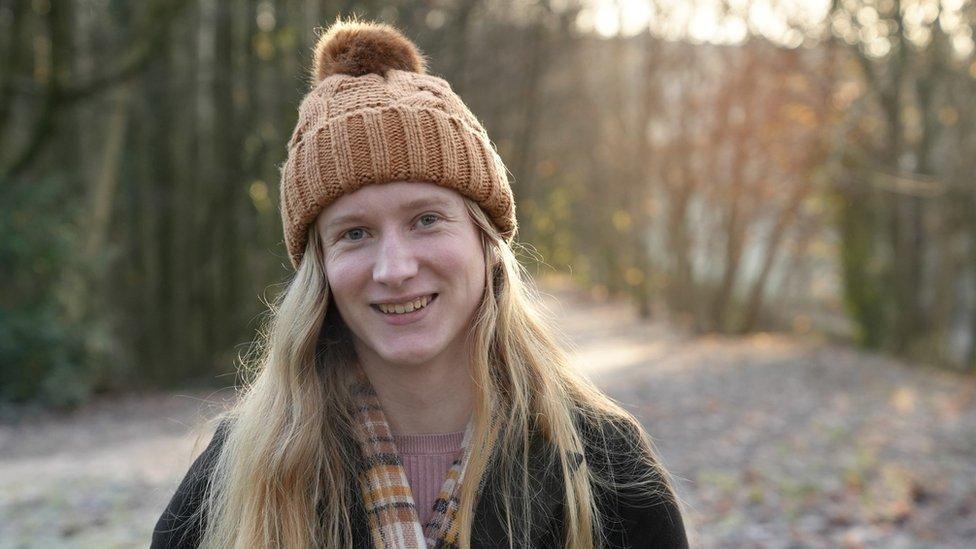
Ellie Gomersall is among the radical Green activists looking to replace Harvie as the party's top MSP candidate in Glasgow
In a social media campaign video, three activists - Ellie Gomersall, Iris Duane and Councillor Seonad Hoy - argue that "a fresh start" is needed, and that internal power has been "consolidated into a smaller and smaller group of people".
They're critical of the time the Greens spent in government with the SNP, saying there was a lack of investment in communities during that period.
I contacted all three to try and speak to them for this article but couldn't secure any interviews.
Patrick Harvie spoke to me for 30 minutes near his office in Glasgow.
He gave a passionate defence of the Bute House Agreement – the deal that took the party into government with the SNP between 2021 and 2024.
The outgoing co-leader insisted that politics requires compromise, adding that "for a long time the Greens sometimes were guilty of - and sometimes even felt satisfied about - just saying 'we're right, everyone else is wrong'.
"Sometimes that can make activists feel satisfied. But it doesn't achieve very much. And I think to a lot of voters it comes across as smugness."
He won't name names but says some individuals "never accepted the legitimacy of the decision on the Bute House Agreement and set out to try and undermine not just the position of the party but some of the individuals [involved]. That behaviour is out of order".
Patrick Harvie to stand down as Scottish Green co-leader
- Published2 April
Patrick Harvie warns of Green infighting and far right threat
- Published12 April
But one party insider, who wanted to remain anonymous, accused the Green leadership of using "a made-up tale about 'factions' to shore up their own position and drive out any minor dissent".
They added that a lack of tolerating alternative views about the Bute House Agreement made the Greens look "petty".
The disagreements go beyond this one selection battle in Glasgow.
One vocal critic of the party leadership, Niall Christie, was a candidate in Glasgow at the general election last year.
After complaints, he's been suspended as a member while candidate selections are under way. Some have questioned if there's a political motivation behind this development.
The party refused to comment on this disciplinary matter.
Another Green Party figure told me that despite a "happy clappy" reputation there's been a "civil war" going on for some time, with members leaking material to journalists and briefing against one another.
They said the culture had become "much worse" since the recent leadership contest began. And they claimed that arguments framed as policy disagreements were actually more to do with "personal beefs".
The same individual was critical of the "Glasgow Faction", saying these activists believed "if we go out with our banners and flags eventually we'll win. They think we can activate the proletariat, but that's not how the world works".
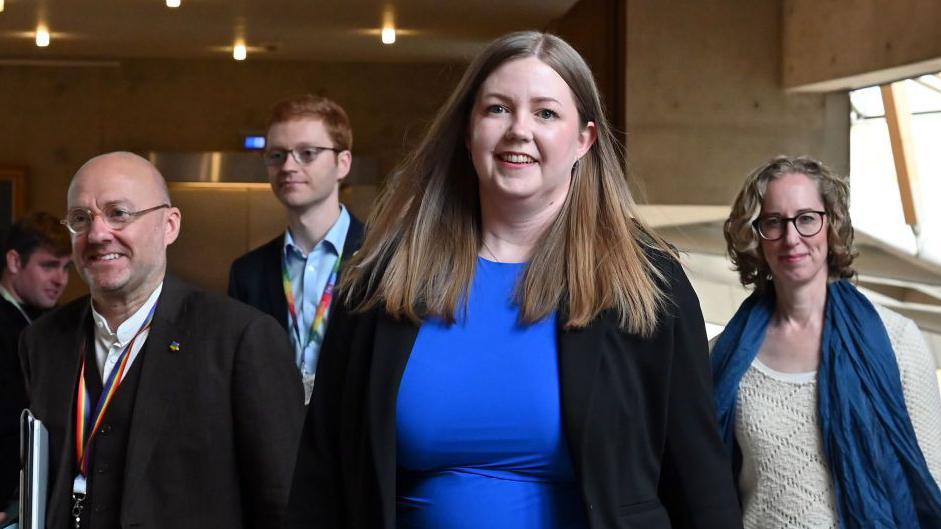
Lorna Slater (right) Gillian Mackay and Ross Greer (second left) - pictured with Patrick Harvie - are all standing in the Scottish Greens leadership contest
These divisions may well spill into the ongoing leadership contest.
Current co-leader Lorna Slater is seeking re-election to one of the two positions. And fellow MSPs Gillian Mackay and Ross Greer have also launched bids.
Mr Greer is close to outgoing party leader Patrick Harvie and was involved in the drafting of the Bute House Agreement. Ms Mackay said she was "upset" when that deal came to an end.
The co-leaders don't have to be MSPs, and some are predicting a challenge from a grassroots candidate.
The Scottish Greens are perhaps suffering from the inevitable consequences of their own success.
Nowadays they're an important political party - with a taste for government and a cohort of engaged activists.
Political relevance can often intensify internal disagreements. There's more at stake for each "side" in these disputes.
But do these internal squabbles really matter to anyone beyond the 7,000 members the party has?
When you cast an eye over at the polls looking ahead to the Holyrood election in 2026, it's looking likely that any government will need the support of at least one other party.
The Greens have the potential to be kingmakers. And whether or not they will support a government – and the terms on which they will do so – could ultimately have a much broader effect.
The direction this party takes in the coming months, and how these arguments play out, may have an impact well beyond the Scottish Green membership.
- Published10 July
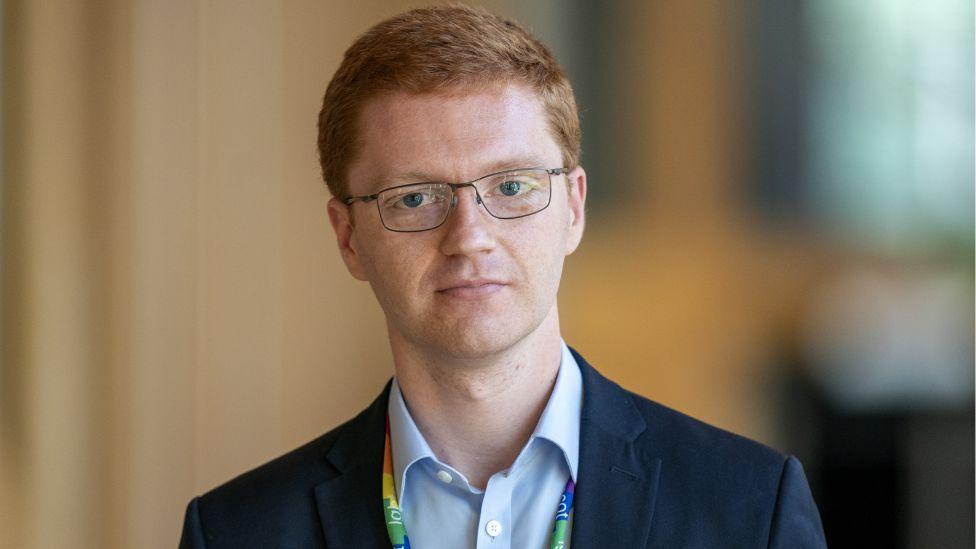
- Published9 May
